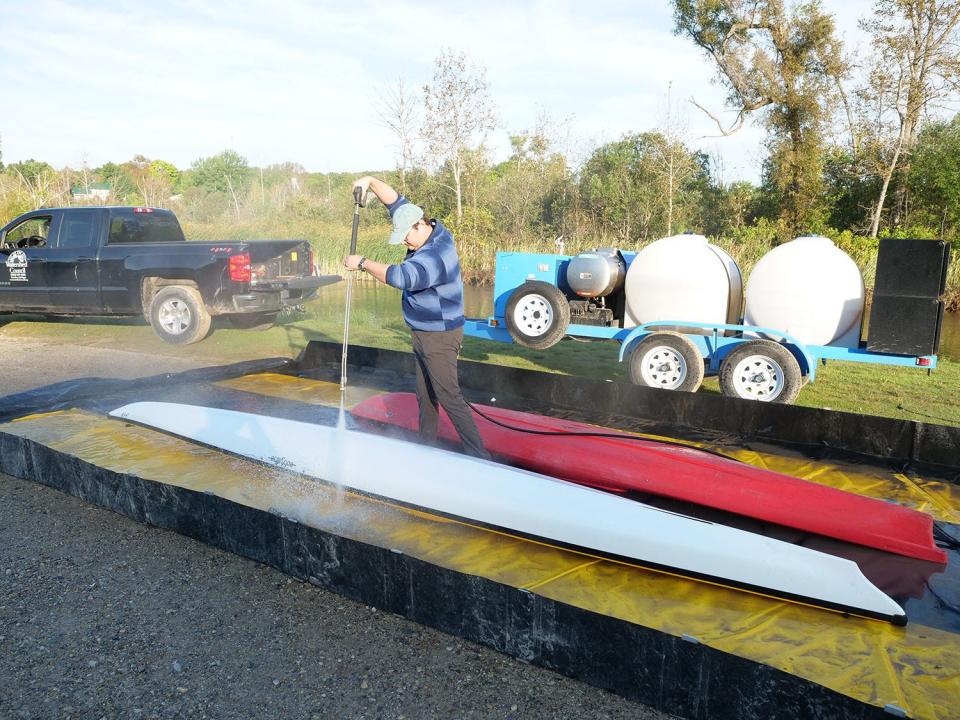Seasonal tips to reduce the spread of invasive species in Michigan
Summer's here and with it comes more and more people getting outside, hiking, biking, swimming and boating. However with an increased amount of people out and about, there's an increased risk of transporting invasive species.
Michigan's Invasive Species Program has a list of state specific invasive species and defines them as a species not native and whose introduction causes harm, or is likely to cause harm to Michigan's economy, environment, or human health. This could include a variety of insects, diseases, animals, plants and more.
The News-Review recently spoke with the Little Traverse Conservancy and its director of stewardship Derek Shiels about ways to reduce the chance of transporting these invasives. Here's what he had to say:
Subscribe: Get unlimited access to our local coverage
"A lot of it is really about being mindful," he said.
"You can start by having this awareness that we are transporters and trails, waterways, even roadways and human pathways are vectors for invasive plants and things to spread."
Shiels said the transportation of a lot of these invasive species can also be reduced by being mindful.
Provided tips include brushing or washing off your boots before and after a hike. A tip Sheils provided was to also keep two buckets, a spray bottle with a bleach solution and a brush in your car to use before or after your hikes.
Some area preserves and nature areas through Charlevoix County even have boot brush stations available for trail patrons. They were installed throughout the county on behalf of the Leadership Charlevoix County class of 2017 to help reduce the spread of invasive species such as garlic mustard or purple loosetrife.
"You can even do this both before and after for even better results but you can scrub your boots off with the brush, spray the bottoms with the bleach solution and let it sit for a minute or so. Rinse them off and you're good to go," he said.
Washing off your boots also translates to water sports and making sure your boat is rinsed off after taking it out for the day.

"There are a lot of boat launch areas around that have boat washing supplies and opportunities but people can wash their boats right at home," said Shiels.
"Just make sure to spray off the bottom of the boat or even your ATV tires if you take those out. Make sure everything is off before moving your equipment to another site or body of water. Even making sure it's dry before moving it would be that much more helpful."
Sheils said that above all, it's important to follow any state rules and to just be mindful of what you're doing, when you're doing it.
More information about the state's specific invasive species can be found at www.michigan.gov/invasives.
Contact reporter Sean Miller at smiller@petoskeynews.com. Follow him on Twitter, @seanmillerpnr, and Instagram, @sean_everest.
This article originally appeared on The Petoskey News-Review: Tips to reduce the spread of invasive species in Michigan

